- Wednesday, 20 August 2025
What To Expect From PM's India Visit
Amidst a little mistrust, more scepticism and some uncertainties, Prime Minister KP Sharma Oli’s official India visit has finally been worked out. If all goes well, Prime Minister Oli will visit India in the third week of September at the invitation of his Indian counterpart, Narendra Modi, although the exact dates and duration are still being finalised. The visit is expected to build a new foundation of trust and goodwill for accelerating the pace of cooperation and partnership between these two close South Asian neighbours.
PM Oli is embarking on an India visit more than one year after he assumed premiership in mid-July 2024. Over the last year, he has undertaken several international trips to advance Nepal's diplomatic presence and economic interests abroad. He visited China, the US, Thailand, Spain and Turkmenistan. China was his official bilateral visit at the invitation of Chinese Premier Li Qiang. The US visit was to attend the 79th UN General Assembly meeting in New York, while in Spain and Turkmenistan, Prime Minister Oli attended UN conferences where he raised the issues and problems faced by the least developed, land-locked and developing countries, including Nepal.
National interest
In addition, PM Oli visited Thailand to attend the BIMSTEC summit, where he shared his vision on regional cooperation among the countries of the Bay of Bengal region — Nepal, India, Bangladesh, Bhutan, Myanmar, Sri Lanka, and Thailand. The foreign policy of any country is the extension of domestic policy and the fundamental objective of foreign policy is to protect and promote national interest. The Constitution of Nepal has clearly stated the objectives and priorities of foreign policy. Based on its policy of non-alignment and ‘amity with all and enmity to none’, Nepal has adopted policies of friendship and cooperation with all countries in the world.
But the level of relations varies with countries depending on economic and other engagements. Being an immediate neighbour and having multiple engagements, India definitely occupies more prominence and priority in Nepal’s foreign policy. Much hullabaloo was made in some quarters over the last year since KP Oli was elected as Prime Minister about his relations with India. The delay in visiting India was labelled as a result of embittered relations with New Delhi. It does not mean that any Prime Minister has to visit India immediately after being appointed Prime Minister in the way of ‘presenting credentials’.
Nepal is a sovereign country and its head of government has the sovereign right to decide when and where the first foreign visit should be. Moreover, the visit to any country is determined based on the needs of the nation. Defining relations with any country just based on visits is a misguided notion. Nepal and India are close neighbours that share a long open border. These two countries are bound by history, geography, culture, religion and several other factors. India is Nepal’s largest trading partner. So Nepal’s relations with India cannot be compared with any other country. At the same time, the hard truth is that Nepal has some pressing issues with India, including territorial disputes along the border, which need to be settled amicably for the interest of both countries.
Now, Prime Minister Oli’s India visit has been scheduled and the governments of the two countries are working out the necessary formalities and preparations to make the visit meaningful and result-oriented. Indian Foreign Secretary Vikram Mishri is set to visit Nepal on August 17, during which officials of both countries are expected to finalise the agenda and exact dates of PM Oli’s visit. All accumulated issues may not be settled during a single visit but a positive tone would be set to sort out the outstanding matters gradually. There are some matters India may not want to hear, including the Kalapani issue.
But problems should by no means be swept under the rug and instead, there have to be open and frank discussions putting one another’s position on the table based on the evidence. This alone will help resolve the issues and elevate the level of relations between the two countries. India often seems to handle relations with Nepal through bureaucratic channels. It had been thought that India under BJP rule would come out of Neheruvian hegemonic diplomacy, especially with its small and weaker neighbours, which was, in a way, a continuation of the colonial era’s legacy.
After Narendra Modi rose to power in 2014, India was expected to deal with Nepal at the political level and its indications were visible in the beginning. Moreover, the Modi government announced the ‘neighbourhood first policy’, which had, to a large extent, been taken enthusiastically by all in South Asia and it had instilled a sense of optimism for cosier relations and a better atmosphere for meaningful cooperation in the region. However, it turned out to be a mere assumption and India again went back to square one when it comes to dealing with its neighbours, especially Nepal.
Ups and downs
Nepal’s relations with India, in a practical sense, started in 1947 after India attained independence from the British, although contacts and connections with different principalities that existed in what is now called India had been from the prehistoric period. Nepal and India established diplomatic relations on June 13, 1947. Since then, the relations between these two countries have continued to grow but have witnessed ups and downs at different intervals of history.
Being close neighbours sharing many commonalities, there are issues between these two countries, which must be settled in a friendly and neighbourly way through diplomatic dialogue. Prime Minister Oli is, perhaps, the senior-most leader among other contemporary leaders of Nepal and has more clarity on foreign policy issues than others. Thus, Prime Minister Oli is expected to take up the outstanding issues with more clarity and vigour during his New Delhi sojourn to find an amicable solution in the best interest of Nepal.
(The author is a former chief editor of this daily and a former ambassador. lamsalyubanath@gmail.com)



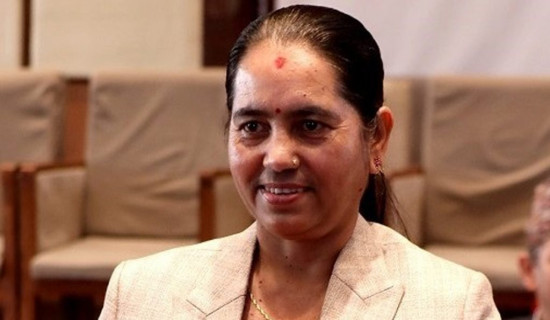
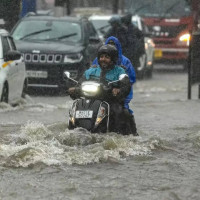

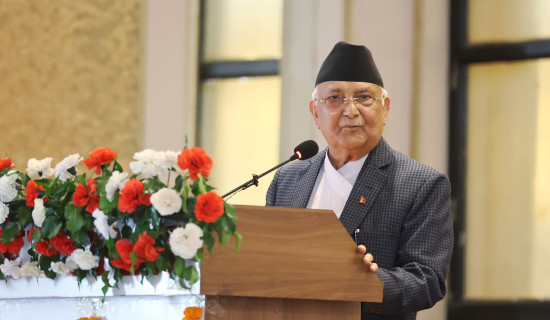
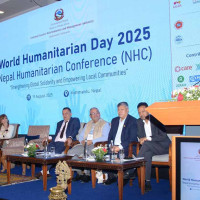
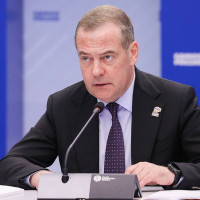
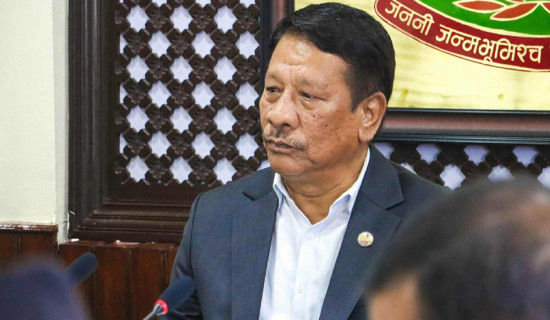



-original-thumb.jpg)



